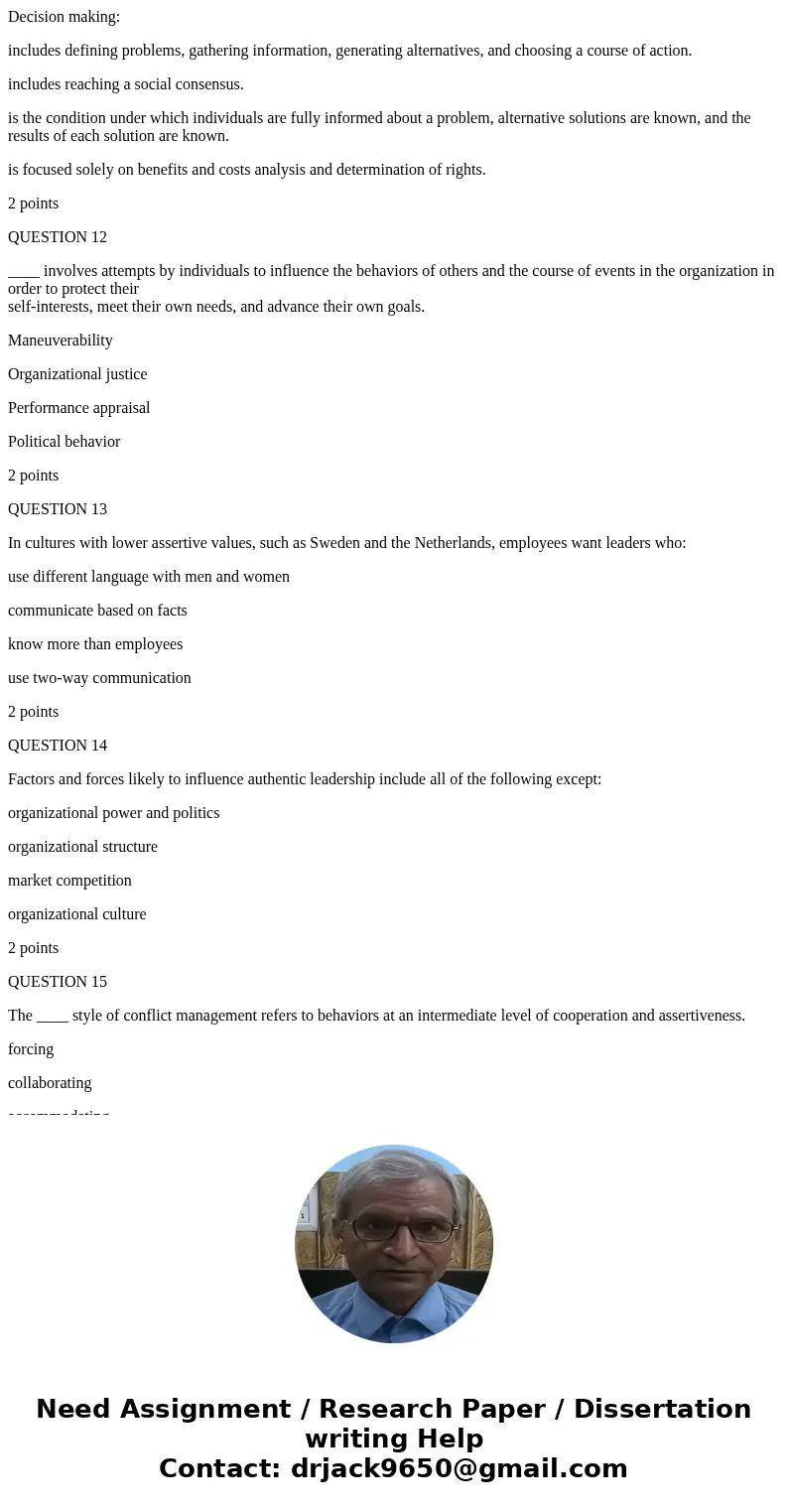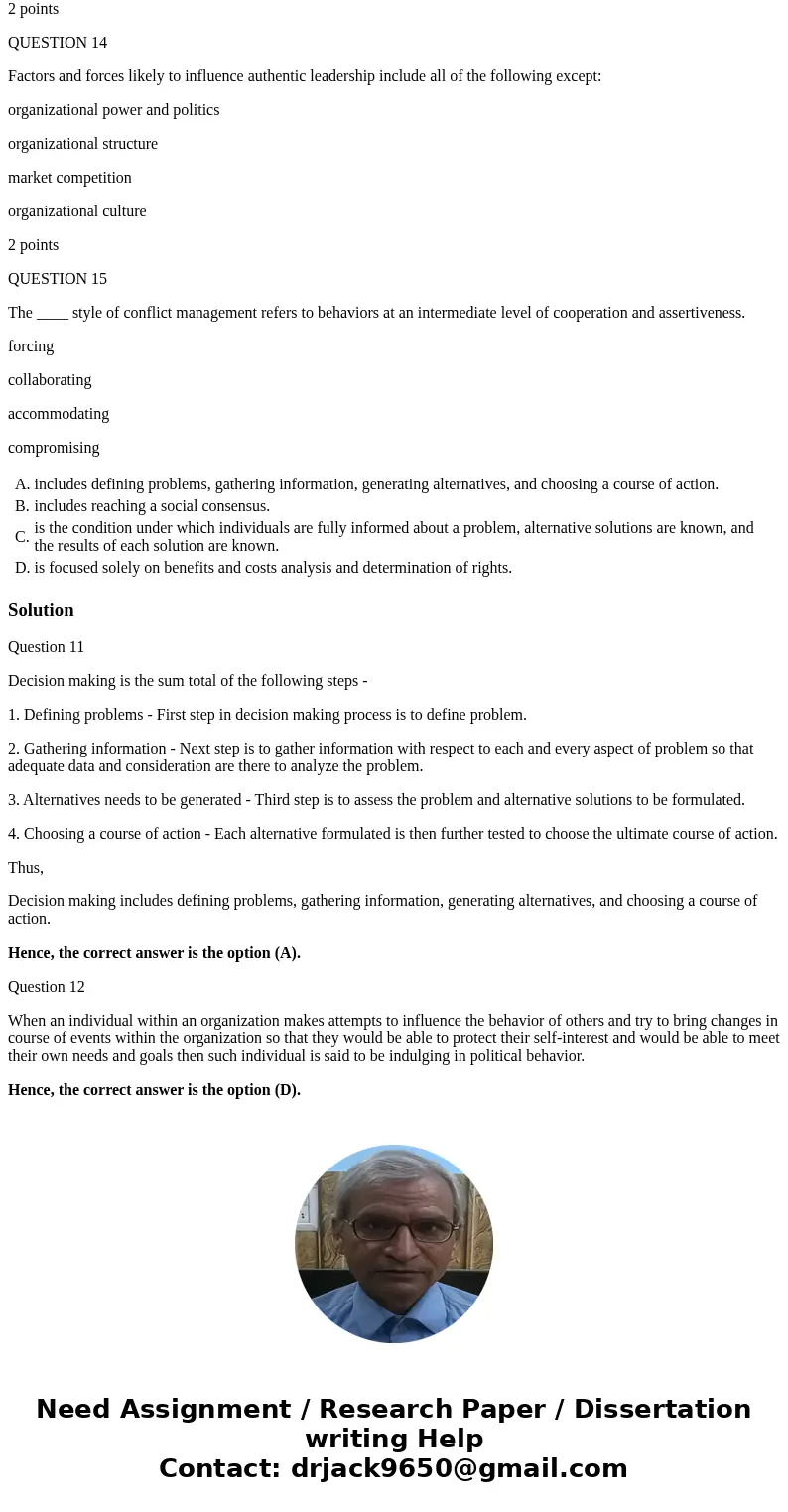Decision making includes defining problems gathering informa
Decision making:
includes defining problems, gathering information, generating alternatives, and choosing a course of action.
includes reaching a social consensus.
is the condition under which individuals are fully informed about a problem, alternative solutions are known, and the results of each solution are known.
is focused solely on benefits and costs analysis and determination of rights.
2 points
QUESTION 12
____ involves attempts by individuals to influence the behaviors of others and the course of events in the organization in order to protect their
self-interests, meet their own needs, and advance their own goals.
Maneuverability
Organizational justice
Performance appraisal
Political behavior
2 points
QUESTION 13
In cultures with lower assertive values, such as Sweden and the Netherlands, employees want leaders who:
use different language with men and women
communicate based on facts
know more than employees
use two-way communication
2 points
QUESTION 14
Factors and forces likely to influence authentic leadership include all of the following except:
organizational power and politics
organizational structure
market competition
organizational culture
2 points
QUESTION 15
The ____ style of conflict management refers to behaviors at an intermediate level of cooperation and assertiveness.
forcing
collaborating
accommodating
compromising
| A. | includes defining problems, gathering information, generating alternatives, and choosing a course of action. | |
| B. | includes reaching a social consensus. | |
| C. | is the condition under which individuals are fully informed about a problem, alternative solutions are known, and the results of each solution are known. | |
| D. | is focused solely on benefits and costs analysis and determination of rights. |
Solution
Question 11
Decision making is the sum total of the following steps -
1. Defining problems - First step in decision making process is to define problem.
2. Gathering information - Next step is to gather information with respect to each and every aspect of problem so that adequate data and consideration are there to analyze the problem.
3. Alternatives needs to be generated - Third step is to assess the problem and alternative solutions to be formulated.
4. Choosing a course of action - Each alternative formulated is then further tested to choose the ultimate course of action.
Thus,
Decision making includes defining problems, gathering information, generating alternatives, and choosing a course of action.
Hence, the correct answer is the option (A).
Question 12
When an individual within an organization makes attempts to influence the behavior of others and try to bring changes in course of events within the organization so that they would be able to protect their self-interest and would be able to meet their own needs and goals then such individual is said to be indulging in political behavior.
Hence, the correct answer is the option (D).


 Homework Sourse
Homework Sourse